It wasn’t until recently– over the last few years– that I started seeing photos of beautiful Russia. A country that at one point I thought I would never visit has suddenly moved very high up on my travel bucket list! Of course, Russian Food has also made its way onto my bucket list.
I spoke to Peter from Peter’s Food Adventures and learned about life as the child of Russian immigrant parents.
In the interview, I learned that Russia has changed so much even over the course of the last decade. This interview is unique as we are able to learn about life outside of Russia and how it compares to life in Russia.
I had a great time learning from Peter and think that you will too!

What is your background with Russia like?
My background with Russia might be a little different than other bloggers. I was born in Canada to Russian immigrants parents, and grandparents who ran away from the Soviets.
I speak fluently in Russian, and have been to Russia several times before, and have even visited relatives there, after the Soviet Union fell.
The small Russian community in Canada I grew up in had a Russian church as the centre of the community, where we kept many of our traditions, language and food culture alive. I live in Australia now – but try to visit Russia often. I have just released some videos on my youtube from my last trip there.
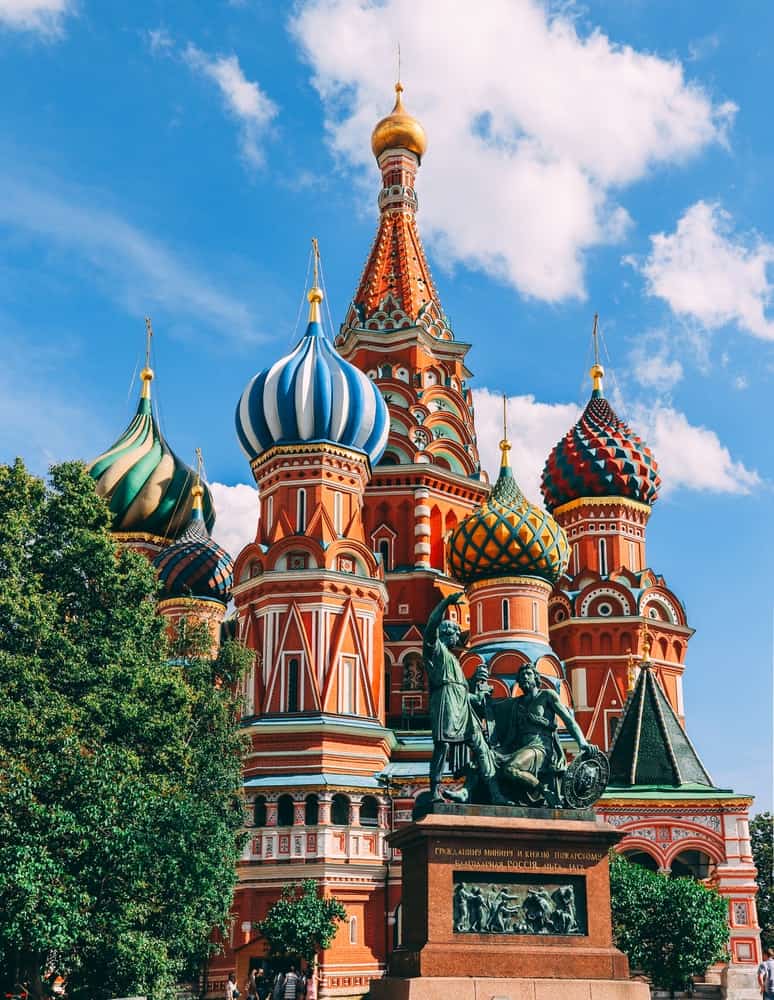
You grew up in a Russian community in Canada but have visited Russia often. How was that Russian community similar to life in Russia? How was it different?
Great question! There were many differences with regards to life in Canada being different to life in Russia, or specifically the USSR. We never had to go without in Canada, and at times in the USSR, that definitely wasn’t the case. We lived in a Russian community that was based around a Russian church, and that wasn’t allowed in the USSR (part of the reason our families left).
Culturally, there are many similarities. Obviously, we all eat the same foods, which brings families and communities together. Many Russians have vegetable gardens, and we too had a huuuuge garden, growing lots of tomatoes, berries, potatoes, corn, melons, carrots, cabbage, and garlic. We also had a summer house or dacha, where you can grow your vegetables, which many Russians have in Russia.
Going back to Russia and meeting relatives, it was incredible to see how we did so many things the same with regards to food and culture, even though we had been separated for 50 years.
I think there are 3 large types of Russians out there, based on their immigration timeline:
- The Russian’s who left during the revolution and after the Russian Civil War, and grew up in the West, whilst keeping the culture and traditions alive (with limited Soviet influence).
- The Russians who left post-Soviet Union. These Russians experienced the full Soviet experience. Their children have grown up in the West now, and many are very westernized, like group one.
- The Russians that still live in Russia today. We are all different, but have so much in common with a shared history, language, and traditions, especially when it comes to food and culture.
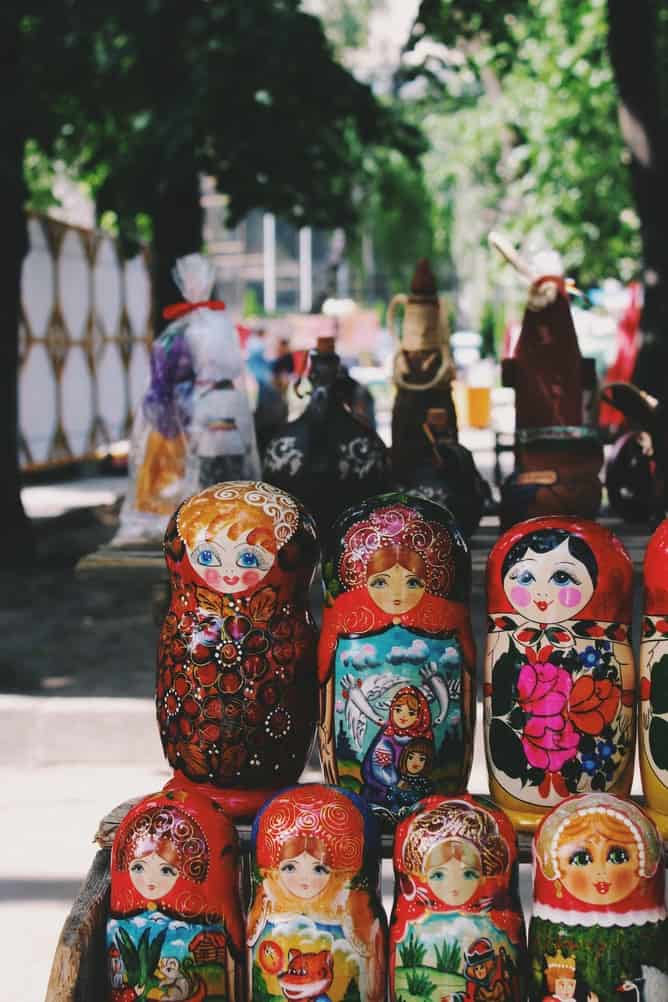
How was that Russian community similar to life in Canada? How was it different?
Canada is a very multicultural country and quite accepting, however, most people didn’t understand Russian culture or food.
You can say let’s eat Italian, and you can think of your favorite Italian dish. When you say let’s eat Russian, people will struggle to think of a food, and might default to cabbage (which I really like to eat). So if you invite friends over, you might have to explain a lot what you are eating for dinner, as people wouldn’t have heard of this food before.
We had great friends who were so open to our foods and culture, and even learned how to make Russian foods for their own families.
Growing up, there was very limited information about Russians, except from bad stereotypes from movies, so that is sometimes what people made their assumptions from. At the same time, we definitely kept within our community to keep our language and culture alive.
What was visiting Russia like shortly after the Soviet Union fell? How has that been different than your more recent trips to the country?
When I first visited after the Soviet Union fell, it was very exciting to finally visit our roots. The exchange rate from USD to RUB was ridiculous, and everything seemed very cheap.
I went up to a Soviet Navy Sailor on the street and bought his Navy hat right off his head for a few US dollars. I remember we stayed at a farm, and they had cut newspaper squares for us to use as toilet paper. We had brought our own toilet paper with us, but I had never seen that before.
Fast forward to present day, and it’s unrecognizable. Moscow has had such a transformation in the last 10 years. There are many billionaires who live in Moscow; it has Europe’s largest mall; Russians enjoy traveling abroad; things have gotten much more expensive in Russia compared to 1991.
The World Cup was an amazing success in Russia, when travelers got to meet the average Russian and celebrate with them. People who visited Russia 25 years ago, would not recognize it today.
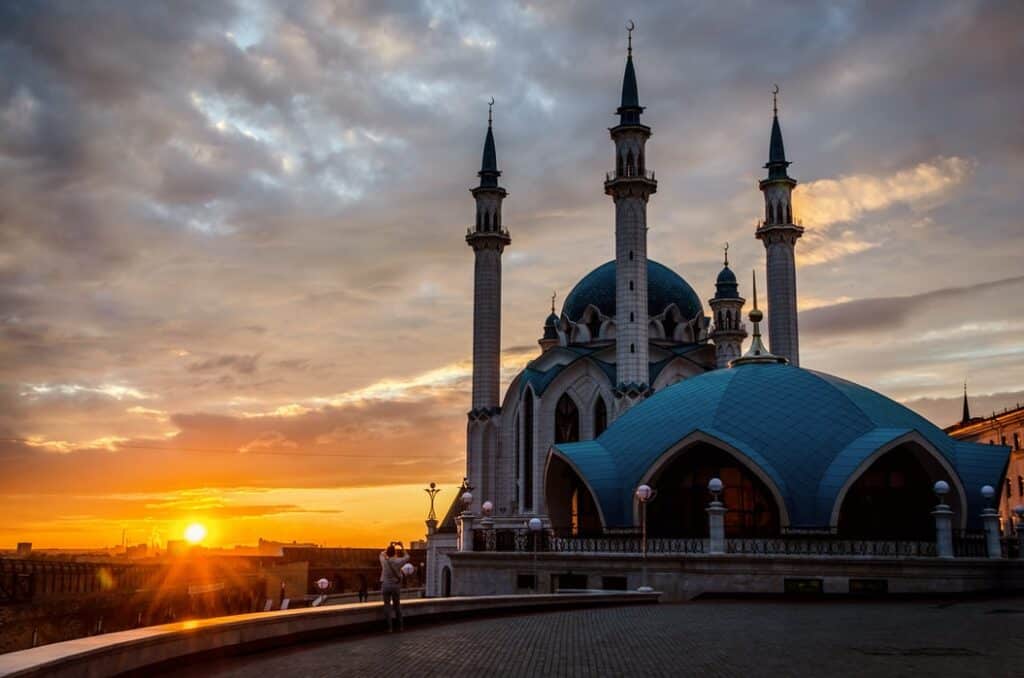
How do you think having a country with such a large land mass has affected the food in Russia? Does Russian Food vary across the country or is it pretty standard?
Russian has almost 200 different ethnic cultures living there, so food does have regional variations. However, the Soviets did seem to standardize language and food to a degree across such a large country.
Russian staples like Pelmeni and Piroshki are the same everywhere, but closer to the Central Asian Republics, there are different variations, and recipes.
I think the weather probably impacts the food in Russia. Short summers mean cabbage and potatoes are staples that grow well and can be stored for the winter. Summer vegetables are often pickled to eat during the cold winters – and not just dill pickles. I love Pickled Tomatoes and Pickled Garlic.
Living in Australia, pickling food is a cultural tradition for food flavor, but no longer a necessity. Food grows here year round, and Australians prefer to eat fresh vegetables, and why not, if it grows year round! But I do love pickled and fermented foods, a lot!
Tell me about Russian Food
Pork, Chicken and Beef are very common, and also fish. There are many lakes and rivers and oceans, and people fish year round (and it doesn’t cost much to fish). Everything you can buy here, you can buy in Russia, their supermarkets and hypermarkets have it all.
We love eating fresh tomatoes in the summer, and home grown tomatoes that have so much flavor, compared to the tasteless tomatoes we buy here. Potatoes and Beets are very common, and used in salads. Salads in Russia aren’t traditionally leafy and green, but hearty with potatoes and meats and even added fish, like Herring Under a Fur Coat Salad.
Russians looooove watermelon in the summer, and much of it grows in Central Asia. Depending on where you live, the fruits you eat change.
In Sochi, which is subtropical, you can grow figs and persimmons, which is unthinkable in the rest of Russia.
In Siberia, you need greenhouses to best grow tomatoes and red peppers, due to a short growing season.
I have a Youtube video of me exploring my uncle’s Summer Dacha, and it is the best garden I have ever seen. I have garden envy!
Russian spices are tasty, and often made up in flavor combinations. At the Central Markets in Sochi, I saw flavoured salts like Pomegranate Salt, spice packets for fish, a different spice combo for making Plov. It was all open like a Turkish spice market.
My favorite spice which you can’t really find easily outside of Russia is a Georgian Spice called Khmeli Suneli. It has a slight curry flavor, but it’s not Indian or curry, made from coriander seed, celery seed, basil, dill, fenugreek, bay leaf, mint and marigold. If you find this, you HAVE to try it! I sprinkle it on roasted potatoes, in scrambled eggs, wherever needs a flavor boost!
What are your everyday Russian foods? What types of things are common for breakfasts, dinners, snacks?
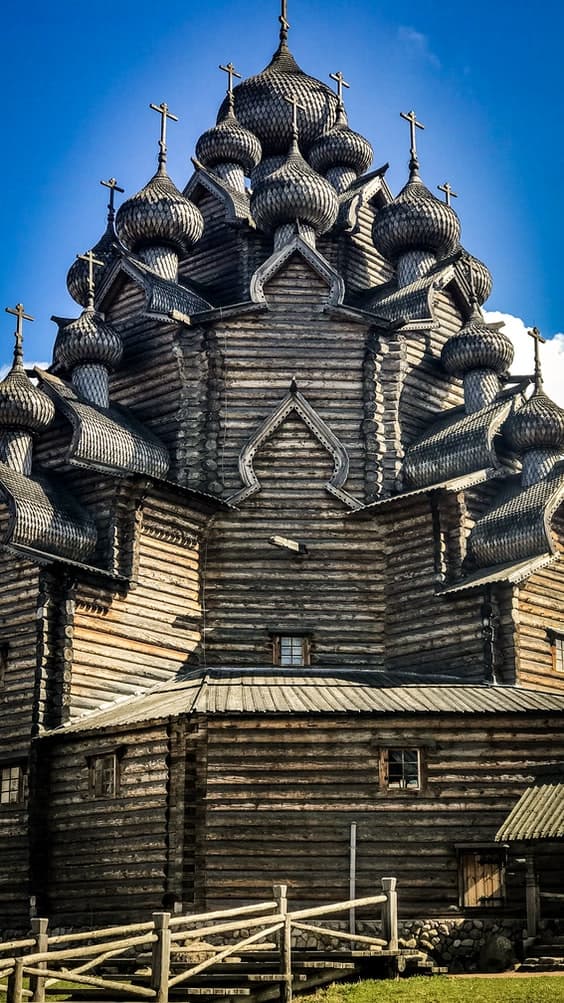
We eat a lot of Pelmeni, a stuffed and boiled meat dumpling served with sour cream. It’s like a giant tortellini. We prepare this in advance, spending a Saturday making them with the family, and freezing them in bags for easy dinners.
Blini are popular for breakfast, which is a thin pancake, like a crepe. We eat them with jam and sour cream, so delicious!
We eat soup like Cabbage Shchi and Beet Borscht.
I usually have some Piroshki, fried hand pies , stuffed with meats, potato or cabbage, for snacks. Russian foods intersect with Slavic foods, due to a shared history over hundreds of years. A Russian dish might also pass as a Ukrainian dish, Moldovan dish, Polish dish or even a Latvian dish.
I have a food blog, not a political blog, and truly believe that food unites, as Slavs have much more in common with each other than not.
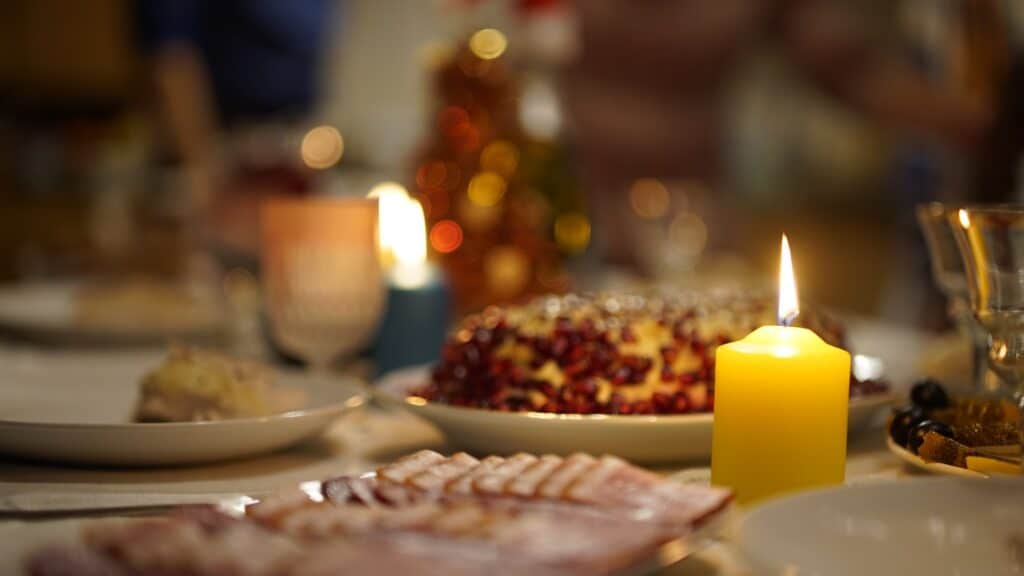
What is your favorite Russian holiday or tradition? Is there a food that makes that occasion special?
Christmas and New Years is my favorite time. There is always a lot of food, and I love Russian salads like Olivier Salad or Herring Under a Fur Coat. We traditionally serve these salads during the holidays.
Herring in a salad sounds weird, but it’s so good. It’s a layered potato salad, with potatoes, carrots, beets and egg, and lots of mayo. We love our mayo.
Olivier or Olivye Salad is like a potato salad, but has peas, carrots, pickles, dill, and of course a meat like chicken or ham. It wouldn’t be a celebration without these recipes.
Is there anything eaten in Russia that’s not eaten anywhere else in the world? Anything surprising?
Hmmm not sure about anywhere else in the world, but certainly Slavic people eat different foods that others don’t. I already spoke about Herring Under a Fur Coat, that’s one for sure.
Another Russian breakfast staple is Grechka or Buckwheat in English. While buckwheat noodles are common in Asia, Buckwheat Porridge is popular in Eastern Europe. It’s a love it or hate it thing, it doesn’t taste as mellow as oat porridge. Russia is the largest producer of buckwheat, growing almost half of the world’s supply, followed by China.
You might find it surprising that we make Caviar Sandwiches too as a Zakuska. It doesn’t mean you are putting caviar sandwiches in your kid’s lunchbox, but more of an appetiser or canapés. Russians love caviar.
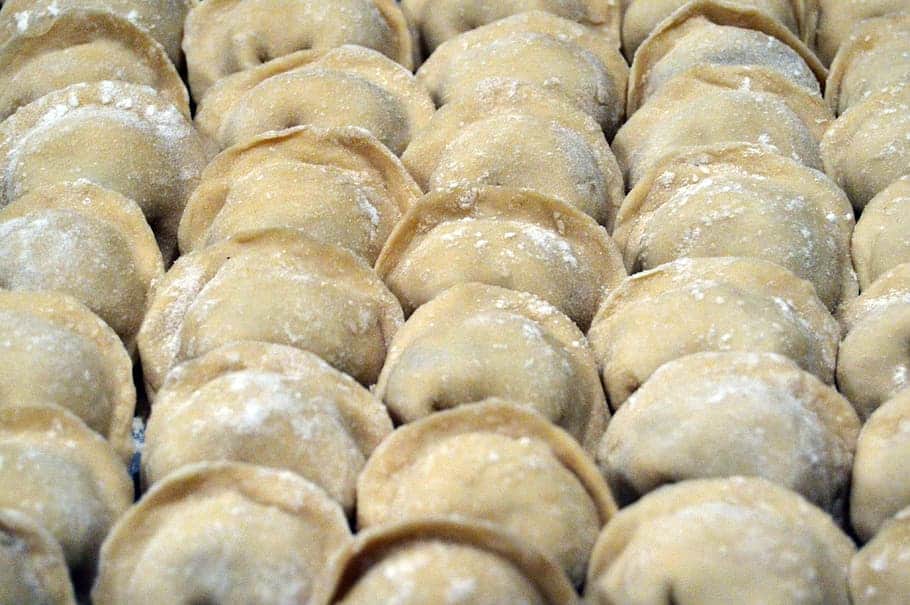
What’s your very favorite recipe from Russia? What is your least favorite food that is traditionally Russian?
My favorite Russian recipe is Pelmeni – those delicious boiled dumplings. I could eat them everyday, they are so good! I also love Kvass, a drink made from Rye Bread which is slightly fermented. It’s the perfect summer drink.
My least favorite is Holodets – which is known as Aspic, or Head Cheese. It’s a meat jelly. I think that’s enough said.
I am working on my own recipe that I’m perfecting, but it needs horseradish or hot mustard as a condiment for me to love it. You never know, it could one day flip over to my favorite!
Are there any ingredients that you love that just aren’t the same unless you’re in Russia?
I love eating Russian fresh cucumbers and tomatoes. They just aren’t the same here, especially the tomatoes. Heirloom varieties exist here, but not all the varieties that you can get in Russia.
Usually someone has some seeds and they plant them, and save them, and share them.
The other very strange thing I love is Russian Ketchup. There is a brand called Maheev, and they have a Ketchup that is chunky with small vegetable chunks in it. It beats Heinz Ketchup any day of the week, and is usually hard for me to find here.
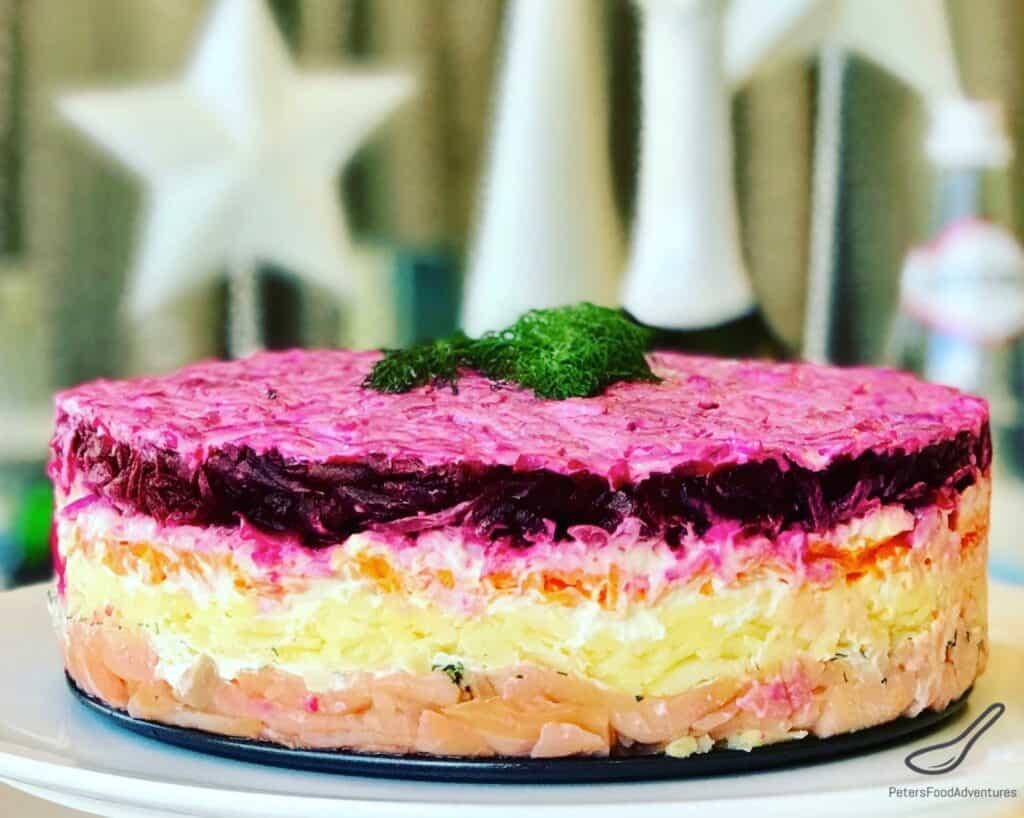
Tell me about your food blog! Why you started it, what it features, etc.
I started my food blog after I had a back injury and was off work recovering. I wanted to capture the recipes of the foods we eat, so I could share them with my kids, to pass onto the next generation.
Instead of a traditional recipe book, I thought it would be modern to make a website, as this is how the next generation communicates. It has grown beyond my expectations.
I still have my mom around, so she cooks with me when she is here, or sometimes over FaceTime when I get stuck and need help.
My blog showcases many Russian recipes, but it’s not all Russian. I have many of my favorite American foods that I grew up with, like a recipe for homemade French Dressing (because they don’t sell that in Australia). I’m a huge sauce guy, and have many different sauce recipes on my blog.
I love my Instant Pot and have a few tasty IP recipes too. My favorite Russian recipe that I will share is Herring Under a Fur Coat – also called Shuba Salad for short. This version is made with smoked salmon and is my favorite way to eat Shuba!
If you want to read more of these interviews, check out these other Country Specific Food Interviews:






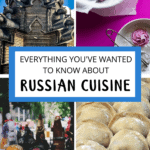


Leave a Reply